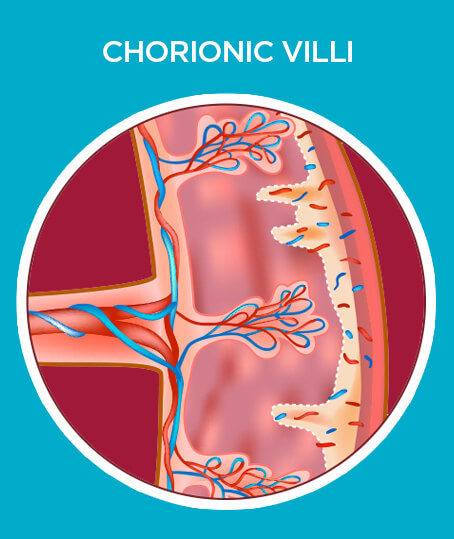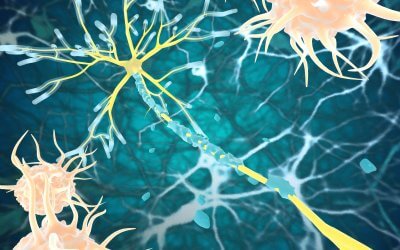Placenta collection
Protect your baby’s future with Placental Cells collection – only with Cells4Life.
Placenta collection
Protect your baby’s future with Placental Cells collection – only with Cells4Life.
Placenta collection
Protect your baby’s future with Placental Cells collection – only with Cells4Life.
The power of your placenta continues long after your baby is born.
It contains billions of placenta cells, which are being investigated in clinical trials to treat conditions such as arthritis, stroke and diabetes. With Cells4Life’s placenta collection service, you can preserve this therapeutic potential for decades and protect your family’s long-term health.
What are placenta cells?
Cells4Life harvests placenta cells from the chorionic villi which are found within your placenta.
The chorionic villi are small, tree-like structures which extend outwards from the chorion. The chorion is the outer membrane of the sac which holds your baby during your pregnancy.
As your baby develops, the chorionic villi maximise contact with mum’s blood stream to ensure they receive all the essential nutrients and cells they need to grow in the womb.
This means that the chorionic villi are rich in powerful placenta cells. Thanks to placenta collection, these cells can continue to support your baby’s health for years to come.
Placenta and cord blood banking
We are the only stem cell bank in the UK to offer placenta storage, meaning you can choose both placenta and cord blood banking and maximise the therapeutic possibilities of your baby’s samples.

Why collect Placental Cells?
Choosing placenta collection is an investment in your baby’s future. It ensures that they can access pioneering new therapies as they become available.
Cells taken from the placenta are perinatal, which means that they are younger and more naïve, and therefore have greater potential in a variety of treatments.
Collecting Placental Cells is quick, simple, safe and completely non-invasive.
Cells from the chorionic villi are unique. They are a perfect match for your baby and can also be used by the mother in therapies. By choosing placenta collection, you can protect your whole family’s long-term health.
What are Placental Cells and what can they do?
Scientists are still discovering potential uses for the chorionic villi, but they are showing incredible promise in an ever-growing list of treatments:
There are around 7.4m people with heart disease in the UK
Cells taken from prenatal sources, such as cells taken from chorionic villi, have great potential in cardiovascular tissue engineering. Scientists expect that they could be used to create heart valves, and maybe even replace blood vessels.
Crohn’s disease affects 0.5-1% of people in the UK
Preclinical studies have used cells from the chorionic villi to decrease inflammation in the liver, which is a symptom of Crohn’s disease.
8.75m people require treatment for osteoarthritis in the UK each year
In China, researchers are currently injecting chorionic-villi-derived cells into arthritic knees to determine if they can reduce inflammation, stiffness, pain and loss of movement.
3.5m people have type 2 diabetes in the UK
Cells from the chorionic villi have also been used in clinical trials for type 2 diabetes. After receiving cells from the placenta, patients with Type 2 diabetes experienced increased levels of insulin and 4 out of 10 patients reduced their insulin doses by more than 50%.
1 in 6 people will have a stroke in their lifetime
Animal studies also suggest that cells from the chorionic villi could be used to help patients recovering from a stroke, particularly due to their ability to promote growth in areas such as the brain.
How does placenta collection and storage work?
Setting up your placenta collection is simple, safe and quick.
Your placenta collection service begins by requesting a welcome pack to find out more about cord blood banking and placenta collection.
Call 01444 873950 to order your placenta collection kit and get started with your service. To begin, you will need to complete some legal forms and we will then send your kit via next day delivery.
Collecting Placental Cells is straightforward but be sure to include our service in your birth plan. This ensures that your birthing team knows you have chosen Cells4Life.
When you go to hospital, make sure you take your placenta collection kit with you and contact your phlebotomist.
Once your baby is born and the placenta is delivered, the phlebotomist will use your placenta collection kit for the collection. This process will vary depending on whether you have chosen to also store cord blood and cord tissue.
Once the collection is complete, the collection kit will be returned to you. Call our 24/7 365 days a year courier, who will collect the kit and return it to our laboratory for processing.
What happens on the day?
Adding placenta storage to your cord blood banking service does not alter the process on the day. We will still take care of everything, and your phlebotomist will simply make sure your placenta is included with the blood and tissue in your collection kit when it is sent back to us.
What does the placenta do?
During pregnancy, the placenta passes oxygen and nutrients from mum’s blood supply through the umbilical cord to baby. It also carries waste products, like carbon dioxide, back to mum whose body can process and remove them.
The placenta carries out several other vital functions – from producing hormones that support your baby’s development, to protecting against infection and providing antibodies to immunise your baby for three months after they are born.
Significantly, the placenta also contains stem cells, which help your baby to grow in the womb and can continue to protect their long-term health through placenta banking.
Request your welcome pack
Request your welcome pack
Why choose Cells4Life?
Cells4Life is the only placenta storage bank in the UK. We are also the UK’s most popular cord blood bank, having stored more UK samples than any other.
Everything about our service has been designed to provide your baby and family with the best long-term health protection possible.
Here are just a few of the benefits to placenta banking with Cells4Life:
- More cells for more treatment opportunities
- Multiple sample and dual location storage
- Most comprehensive range of services
- Year-round collection
- Dedicated couriers
- Industry-leading technology
- HTA-licensed
Why choose Cells4Life?
Cells4Life is the only placenta storage bank in the UK. We are also the UK’s most popular cord blood bank, having stored more UK samples than any other.
Everything about our service has been designed to provide your baby and family with the best long-term health protection possible.
Here are just a few of the benefits to placenta banking with Cells4Life:
- More cells for more treatment opportunities
- Multiple sample and dual location storage
- Most comprehensive range of services
- Year-round collection
- Dedicated couriers
- Industry-leading technology
- HTA-licensed
Why choose Cells4Life?
Cells4Life is the only placenta storage bank in the UK. We are also the UK’s most popular cord blood bank, having stored more UK samples than any other.
Everything about our service has been designed to provide your baby and family with the best long-term health protection possible.
Here are just a few of the benefits to placenta banking with Cells4Life:
- More cells for more treatment opportunities
- Multiple sample and dual location storage
- Most comprehensive range of services
- Year-round collection
- Dedicated couriers
- Industry-leading technology
- HTA-licensed
Quick questions…
How much does it cost to collect placenta cells?
The price of placenta banking varies according to which service you choose. Storing just placental cells starts at £1,950, while storing placenta and amnion starts at £2,650. You can also choose to store your placenta alongside umbilical cord blood and cord tissue with our VIP package.
Are the chorionic villi maternal or foetal?
Latest placenta collection news
Read more about the potential uses and benefits of placenta collection and storage on our stem cell blog:
Early Insights Into Placenta Stem Cell Therapy for Multiple Sclerosis
Researchers are investigating a novel placenta-derived stem cell therapy for multiple sclerosis, a currently incurable degenerative neurological condition. A recent phase 1 clinical trial, with findings published in Scientific Reports, assessed the safety and...
Study Shows Improvement From Placenta Stem Cell Injections for Knee Osteoarthritis
As the world population ages, osteoarthritis (OA), a degenerative, “wear-and-tear” form of arthritis which most often occurs during middle age and onwards,[1] becomes more common and therefore more burdensome. Knee osteoarthritis, in particular, is a major cause of...
Cord Tissue Stem Cell Therapy for Epidermolysis Bullosa Delivers Encouraging Outcomes
Positive early results have emerged from a clinical trial testing an umbilical cord tissue stem cell therapy for epidermolysis bullosa (EB), a currently incurable group of disorders which causes extremely fragile skin. The therapy has shown promise in relieving...






